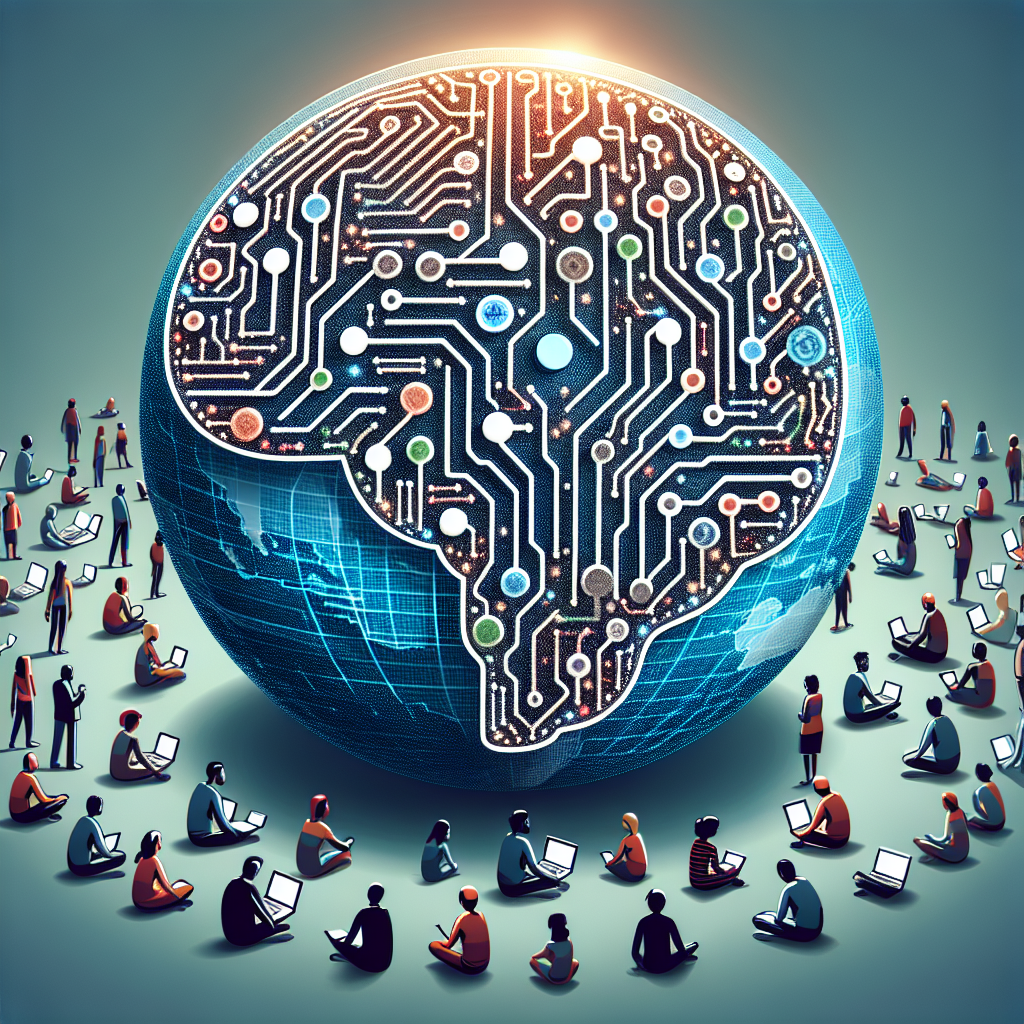In recent years, artificial intelligence (AI) has been rapidly advancing and making its way into various aspects of our daily lives. From virtual assistants like Siri and Alexa to self-driving cars and personalized recommendations on streaming platforms, AI is becoming increasingly prevalent. However, as AI technology continues to evolve, there is a growing movement towards democratizing AI, making it more accessible and inclusive for people around the world.
The democratization of AI is a global movement that aims to break down barriers to entry and empower individuals and organizations to harness the power of AI for innovation and problem-solving. By democratizing AI, we can ensure that the benefits of this transformative technology are more widely distributed and not limited to a select few.
One of the key aspects of the democratization of AI is making AI tools and resources more accessible to a broader audience. This includes providing user-friendly platforms and tools that do not require extensive technical knowledge or programming skills to use. Companies like Google, Microsoft, and IBM have been at the forefront of this movement, offering cloud-based AI services and tools that can be easily accessed and utilized by individuals and businesses of all sizes.
Another important aspect of the democratization of AI is promoting diversity and inclusion in the development and deployment of AI technologies. Historically, the field of AI has been dominated by a homogenous group of researchers and developers, leading to biases and limitations in AI systems. By promoting diversity in the AI workforce and ensuring that AI systems are developed with a diverse range of perspectives in mind, we can create more equitable and inclusive AI technologies.
The democratization of AI also involves addressing ethical and social implications of AI technologies. As AI becomes more integrated into our lives, there are concerns about privacy, security, and the potential for AI systems to perpetuate biases and discrimination. By engaging with stakeholders from diverse backgrounds and disciplines, we can work towards developing AI technologies that are ethically responsible and socially beneficial.
One of the key drivers of the democratization of AI is the open-source movement, which promotes the sharing of AI algorithms, models, and datasets for the benefit of the wider community. Open-source AI projects like TensorFlow, PyTorch, and OpenAI have been instrumental in advancing AI research and development by enabling collaboration and knowledge sharing among researchers and developers around the world.
The democratization of AI is not without its challenges, however. One of the main obstacles to democratizing AI is the digital divide, which refers to the gap between those who have access to technology and those who do not. In order to truly democratize AI, we need to address issues of digital literacy, connectivity, and infrastructure to ensure that everyone has the opportunity to benefit from AI technologies.
Another challenge is the need for increased regulation and oversight of AI technologies to ensure that they are developed and deployed responsibly. As AI becomes more pervasive, there are concerns about the potential for misuse and abuse of AI systems, as well as the impact of AI on jobs and society as a whole. By working together to establish ethical guidelines and regulatory frameworks for AI, we can ensure that AI technologies are used in a way that benefits everyone.
In conclusion, the democratization of AI is a global movement that is reshaping the way we think about and interact with AI technologies. By making AI more accessible, diverse, and ethical, we can harness the full potential of AI to drive innovation, solve complex problems, and improve the quality of life for people around the world. As we continue to advance the democratization of AI, it is important to engage with stakeholders from diverse backgrounds and disciplines to ensure that AI technologies are developed and deployed in a responsible and inclusive manner.
FAQs:
Q: What is AI democratization?
A: AI democratization refers to the movement towards making AI technology more accessible, inclusive, and ethical for people around the world. This includes providing user-friendly tools and resources, promoting diversity in AI development, and addressing ethical and social implications of AI technologies.
Q: Why is AI democratization important?
A: AI democratization is important because it ensures that the benefits of AI technology are more widely distributed and not limited to a select few. By democratizing AI, we can empower individuals and organizations to harness the power of AI for innovation and problem-solving, while also addressing issues of bias, discrimination, and misuse of AI technologies.
Q: How can I get involved in the democratization of AI?
A: There are many ways to get involved in the democratization of AI, such as participating in open-source AI projects, advocating for diversity and inclusion in AI development, and engaging with stakeholders to address ethical and social implications of AI technologies. By working together, we can help shape a more inclusive and equitable future for AI.

